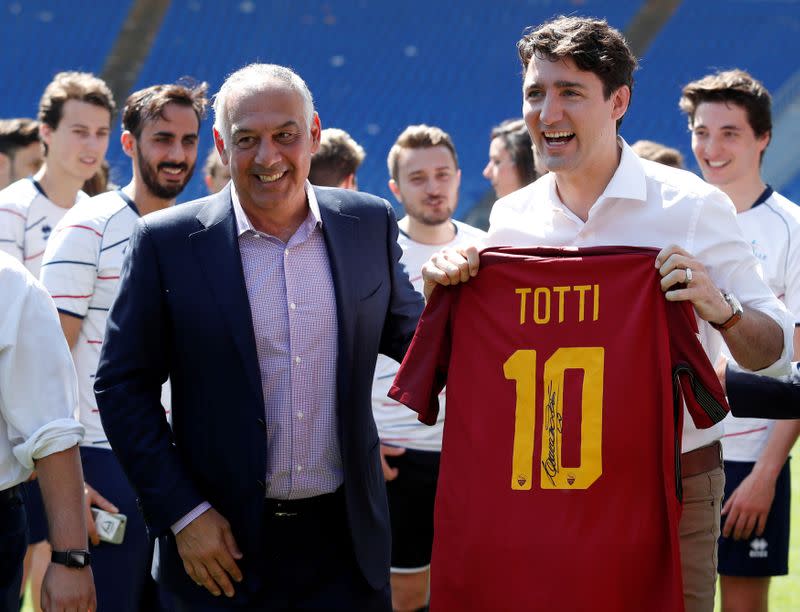Serie A still attracts investors despite decline
By Elvira Pollina
MILAN (Reuters) - Serie A is sometimes seen as the fallen giant of Europe's top soccer leagues, based in a country where a stifling bureaucracy has prevented its clubs from competing on level terms with rivals from England, Spain and Germany.
Yet, AS Roma's imminent takeover by Texas-based billionaire Dan Friedkin, announced on Thursday, shows that it can still attract foreign investors who believe in the potential of both the league and its clubs.
Undeterred by current president James Pallotta's fruitless six-year quest to build Roma's own stadium, the Friedkin Group has agreed a 600 million euro (542 million pounds) deal for a club which, despite its size and prestige, has managed only three Serie A titles in its 93-year history.
There is still little word of what to expect from the new owners who said only that they were happy "to have become a part of this iconic city and club" without giving more details.
Friedkin made his debut as a film director last year with Lyrebird and his group encompasses a consortium of automotive, hospitality, entertainment, golf and adventure companies.
But he has not become involved in ownership of a major sports club until now.
"Friedkin is a financially very solid investor but has no experience in sports and football," Andrea Sartori, global head of sports at KPMG, told Reuters.
"He has certainly been attracted by the brand of Roma and the city of Rome, one of the most visited in the world, with which he can create synergies with his existing businesses, especially if the stadium is created."
"Exploiting these synergies can trigger a virtuous circle that increases the club's commercial revenues," he added.
Serie A used to be the most prestigious of the European Leagues and invariably attracted the top players.
However, the last 10 years have seen it fall behind, with the top players and coaches preferring the Premier League, La Liga and the Bundesliga.
One of the biggest problems is that few clubs own their stadiums, depriving them of revenue, and ambitious projects to build new arenas often get caught up in red tape.
Pallotta, who first unveiled formal plans for a 52,500-seater stadium for Roma in 2014, initially hoped to have it finished for the 2016-17 season.
But, to his exasperation, plans have run into numerous obstacles and work has not even started.
Yet, helped by television revenues from European club competition, foreign investors keep coming and in the last few years have bought up AC Milan, Inter Milan, Fiorentina and Bologna.
"Serie A is a heritage brand in which there is considerable latent brand equity. Twenty-five years ago, Serie A was European football's pre-eminent league, something that investors appear keen to take advantage of," said Simon Chadwick, director at the Centre for the Eurasian Sport Industry.
Chadwick said that investors were also looking to take a minority share in the league itself as well as the clubs.
He added: "It helps that Italian clubs are much cheaper to buy than English clubs, much easier to buy than German clubs, and much less politically sensitive to buy than Spanish clubs."
(Writing by Brian Homewood, editing by Pritha Sarkar)

 Yahoo News
Yahoo News 


